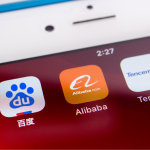China’s e-commerce giant Pinduoduo launches US shopping site to take on Amazon

- Pinduoduo created Temu in its biggest push overseas, despite its rivals extensive international expansions.
- The site, with a layout similar to that of its rival, Shein, sells a range of products, from clothes to electronics at relatively low prices.
There have been rumors over the last few months that Chinese e-commerce giant, Pinduoduo, plans to launch a cross-border e-commerce platform, targeting the United States (US) as its first market. Eventually last week, in a rather subtle way, Pinduoduo actually launched a site known as Temu in the US — marking its first and biggest overseas push yet. While the move is seen as its way to catch up with its local rivals, that are extensive with their international expansion, the existence of Temu will also add further pressure on Amazon, an e-commerce behemoth that controls more than half of the market share in the US.
The website, which went online last Thursday, lists items across a number of categories including clothing, jewelry, pet supplies, and home and garden, signaling the Chinese giant’s attempt of perhaps replicating its disruptive success in the US. Strangely, Pinduoduo has kept its American expansion extremely low-profile. So far, the Tencent-backed company has not made any public announcement or comment on the launch of Temu.
However, when Bloomberg first reported it last month, citing people knowledgeable on the matter, the Shanghai-based company was said to be looking for new growth avenues at a time when its domestic economy is sputtering. Its intentions are to follow in the footsteps of successful international ventures like Shein and AliExpress, both of which are China-based.
Most of China’s biggest technology companies, from Tencent to Pinduoduo’s e-commerce rivals Alibaba and JD.com, have continued pursuing international markets. Pinduoduo, a much younger company than Alibaba and JD.com, having only been founded in 2015, is behind its rivals when it comes to the overseas push. Despite its late arrival, PDD broke through in China’s highly competitive internet retail space by bringing in social e-commerce practices that have helped build an annual active user base of more than 880 million.
It won over shoppers by creating a sort of WhatsApp-Groupon mashup, where consumers spot deals on products, like toys and fruits, and then recruit friends to buy at a discount. When it comes to the US, Pinduoduo is not new to the local financial ecosystem as its shares are trading on the Nasdaq Global Select Market. According to industry intelligence outfit, EMarketer, the US-traded arm controls as much as 13% of the share of the Chinese online retail platform.
Pinduoduo foreseeable challenges to crack into the US market
Now that the US site has gone live, Pinduoduo will have to worry about the next, most significant hurdle — significantly higher regulatory pressures from the US authorities as well as the Chinese. Pinduoduo is one of the few Chinese companies that still has its shares traded on a public bourse in America.
It will also need to build brand reputation against the likes of Amazon, which contributed to almost 60% of all e-commerce transactions in the US last year. Pinduoduo’s Temu sells mostly products from overseas, and especially from China, which is why shipping to the US could take 7-15 business days.
“It’s important to keep in mind that you may see longer delivery times than you’re used to from other e-commerce websites. This is due to the fact that items may be coming from another country or need to be bundled or packaged with other similar-sized items,” the website says on its shipping information page.
Based on its relatively long shipping times, there is a significant pressure on Pinduoduo considering that Amazon offers same-day or next-day deliveries. Plus, Amazon’s tightening grip on e-commerce sales marks a continuation of the step-by-step market share advance Amazon has made over the past twenty years. Temu will need to prove that it has products unavailable on Amazon, that will be worth the longer waiting times to a consumer market no longer accustomed to waiting for anything.










